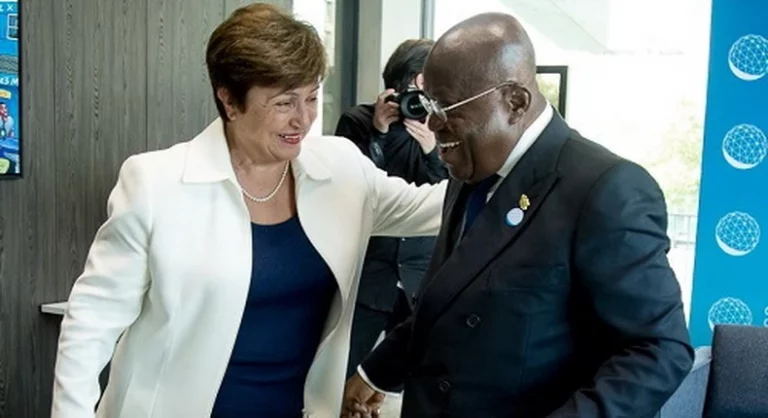The first review of Ghana’s three-year program under the Extended Credit Facility has come to a successful conclusion with the country and the International Monetary Fund (IMF) coming to an agreement at the staff level regarding economic policies and reforms.
It’s crucial to remember that this agreement still needs to be approved by the IMF Executive Board and receive the required financing assurances.
Ghana has received praise from the IMF for its steadfast dedication to the program’s policy and reform initiatives, which have started to show promising results and are assisting in economic stabilization.
The economy of Ghana is expected to grow more strongly than initially predicted in 2023, and the country’s inflation rate has dropped, making the economy more stable.
The nation’s fiscal and external positions have improved, and the value of the currency has stabilized.
Ghana will have access to about $600 million in financing once the review has received official approval from IMF Management and the IMF Executive Board. Reaching an agreement on the debt treatment by official creditors, as outlined in the financing assurances provided in May 2023, is necessary for the timely completion of this review.
The Ghanaian government has shown strong fiscal performance, according to the IMF, by maintaining its plan to cut the fiscal primary deficit as a percentage of GDP by roughly 4 percentage points in 2023. In order to help vulnerable populations affected by economic hardships, the government expanded social protection programs while staying within program spending caps.
According to the financing guarantees they gave in May 2023, the IMF has urged official creditors to cooperate in determining an appropriate debt treatment for Ghana. In order to support Ghana’s ongoing economic reform program, this is a crucial step.
In conclusion, this staff-level agreement between Ghana and the IMF is the result of Ghana’s dedication to economic reforms and policy measures, as well as promising signs of economic stabilization.
Progress for the nation depends on official creditors’ participation in discussions about debt treatment.

